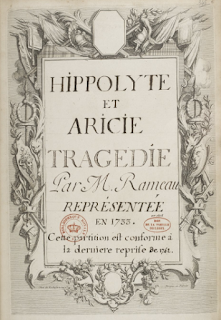Hahn - Ciboulette
Opéra Comique, Paris, Monday February 18 2013
Conductor: Laurence Equilbey. Production: Michel Fau. Sets: Bernard Fau, Citronelle Dufay. Costumes: David Belugou. Lighting, Joël Fabing. Ciboulette: Julie Fuchs. Duparquet: Jean-François Lapointe. Antonin: Julien Behr. Zénobie: Eva Ganizate. Roger: Ronan Debois. Françoise: Cécile Achille. Monsieur Grenu: Jean-Claude Sarragosse. Madame Grenu: Guillemette Laurens. Auguste-Victor: Patrick Kabongo Mubenga. Le Patron; Le Maire: François Rougier. Grisard: Safir Behloul. Le Lieutenant: Olivier Déjean. Madame Pingret: Bernadette Lafont. La Comtesse de Castiglione: Michel Fau. Le directeur d'opéra: Jérôme Deschamps. Accentus choir. Orchestre symphonique de l’Opéra de Toulon.
.jpg/200px-Reynaldo_Hahn,_par_Lucie_Lambert_(1907).jpg) |
| Hahn |
I personally was glad for a chance to hear the piece in capable hands, and for being prompted, in anticipation, to look into Hahn’s work more widely. The score of Ciboulette is at once simple and sophisticated: deliberately simple, I suppose, to suit the genre (though perhaps also in line with “simplifying” trends in French music in the 20s), but full of likeable surprises that leap out of the pit from time to time. Harmonically, as Hahn left Venezuela at the age of 3, I should imagine it‘s only by suggestion that, to me, it has something langorously Latin American about it – I suppose I’m thinking of both Villa-Lobos and Milhaud; but there were brief moments of even Korngoldian chewiness. The waltz at the end is not, to my mind, the most inspired part of the score, which Laurence Equilbey and the Toulon band played (mostly: there was some rough brass-work and occasionally dodgy woodwind tuning) with great delicacy. But it was one of two "hits" of the show that the audience was encouraged to sing along with: there were score sheets tucked inside the programmes, and those who wanted to could rehearse before the show.
The cast was led by three strong principles. Julie Fuchs, whom I discovered very recently in Mozart's C Minor Mass alongside Ann Hallenberg, has a young, sweet, pretty voice with something of the "old-fashioned" sound of French sopranos once famous in the role (Géori Boué, who sang it in the same house in 1953, now in her 90s, was present on opening night). She eclipsed Zénobie. Julien Behr's tenor is equally young, sweet and pretty, and Jean-François Lapointe is an impeccable baritone, strong but subtle. They were supported, in the main, by pupils from the Opéra Comique's Academy, who at the very least were, in French civil service parlance, soucieux de bien faire. There's little to say about Guillemette Laurens, who once sang Cybèle on the same stage, as she gets so little to sing, but she made a wonderfully comical Madame Grenu: hands on hips, rolling eyes and giant grin.
The sets were simple, sepia flats made by blowing up old photos. In act one, we had Baltard's ironwork, as was, in Les Halles, with the flying buttresses of St Sulpice in the background, the mirrors and bench seating of a Belle Epoque brasserie in front, and, at first, costumes that pursued the black-and-white theme: befrogged, grey-coated hussars in tight, white breeches and boots, courtisans in something like Paul Poiret robes, and Zénobie in a vast, black, spangled crinoline with matching nipples on her (supposedly if not actually) bare breasts. As crates of fruit and vegetables appeared, so did some colour. Ciboulette's cart was drawn by cardboard cut-out donkeys.
In the next act, we had sepia views of an ancient village street - for all I know, of Aubervilliers before it was engulfed by Paris, as there were, quand même, gas lamps and Parisian-style enamel street-name plaques - with, in the distance, a windmill, incongruous in the middle of a plain, and the far-off Sacré Coeur. The eight soon-to-be-ex suitors were a riot of gaudily-coloured jackets and waistcoats, gaudily-checked trousers, bowler hats and boaters.
| Aubervilliers |
Guillemette Laurens, as I said, visibly had a whale of a time, and Jérôme Deschamps, real-life director of the Opéra Comique, put in a very comical double-act with Michel Fau, the stage director, dragged up in a gigantic, pea-green crinoline and red wig (and singing one of Hahn's own songs à la Florence Foster-Jenkins), as La Comtesse de Castiglione. But Bernadette Lafont, who is apparently a famous actress, showed no sign of being one; presumably she worked in films. And on the whole, the level of acting, described kindly by the FT critic as like Théâtre de Boulevard, was as corny and unconvincing as Théâtre de Boulevard is - a pity because the texts really are funny and better directing would have got more out of them.
Still, the house was packed, it was a fun evening, people sang along and a good time was had by all; and there was Hahn's music to enjoy as well so who's complaining?
I add, as a special treat, this link to a YouTube clip of Hahn himself singing a couple of naughty but much better than nice French songs.



Comments
Post a Comment